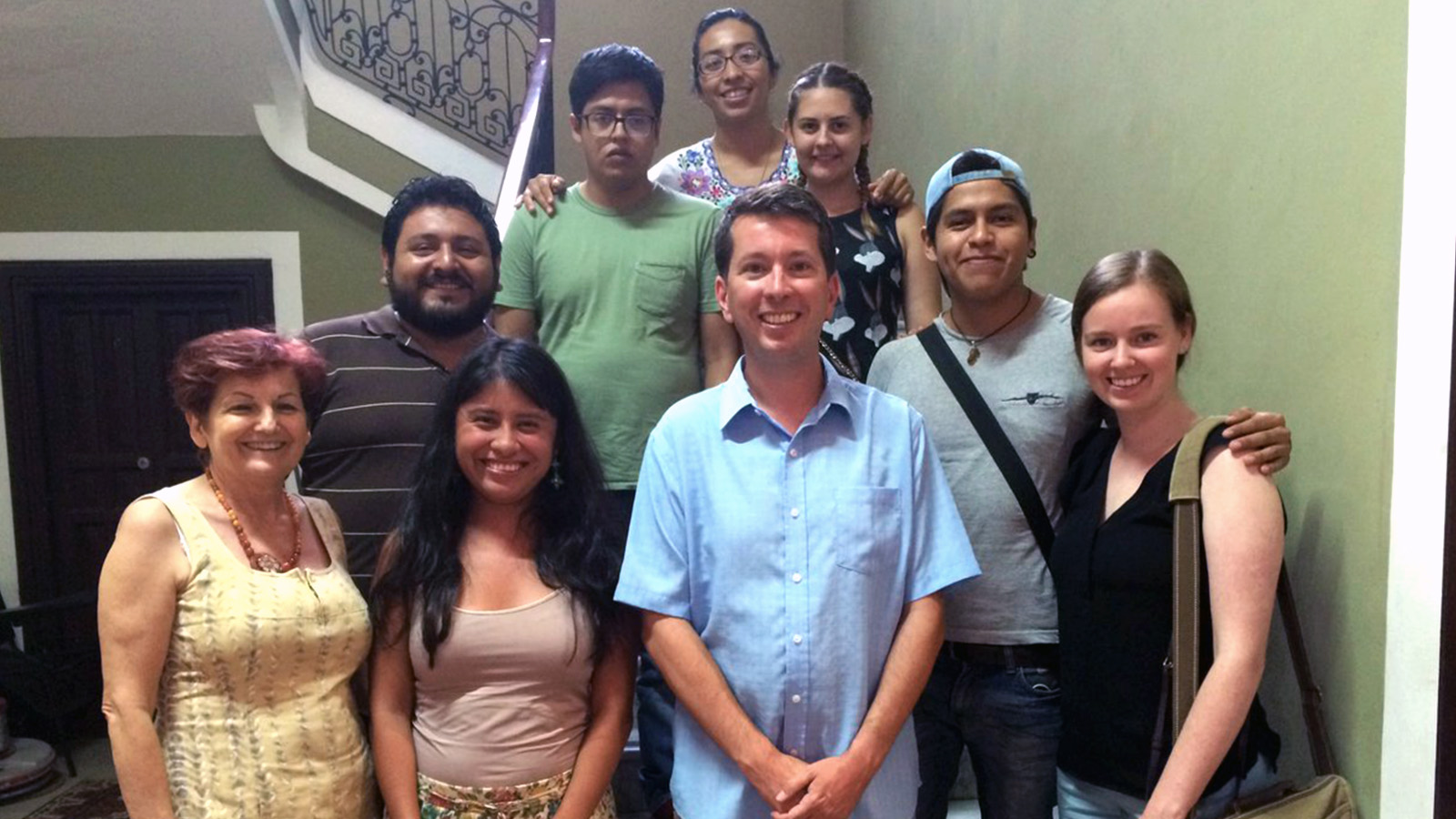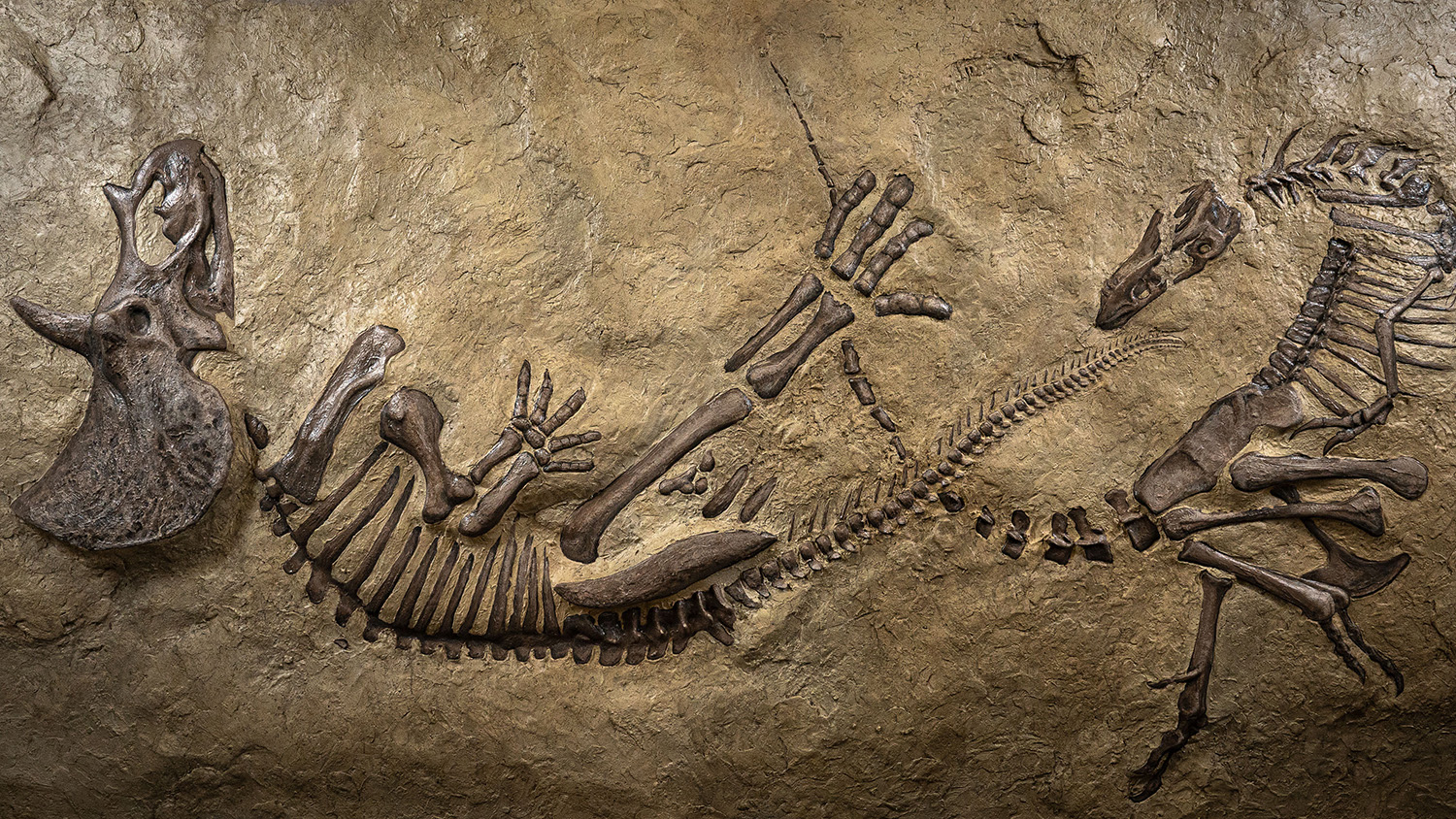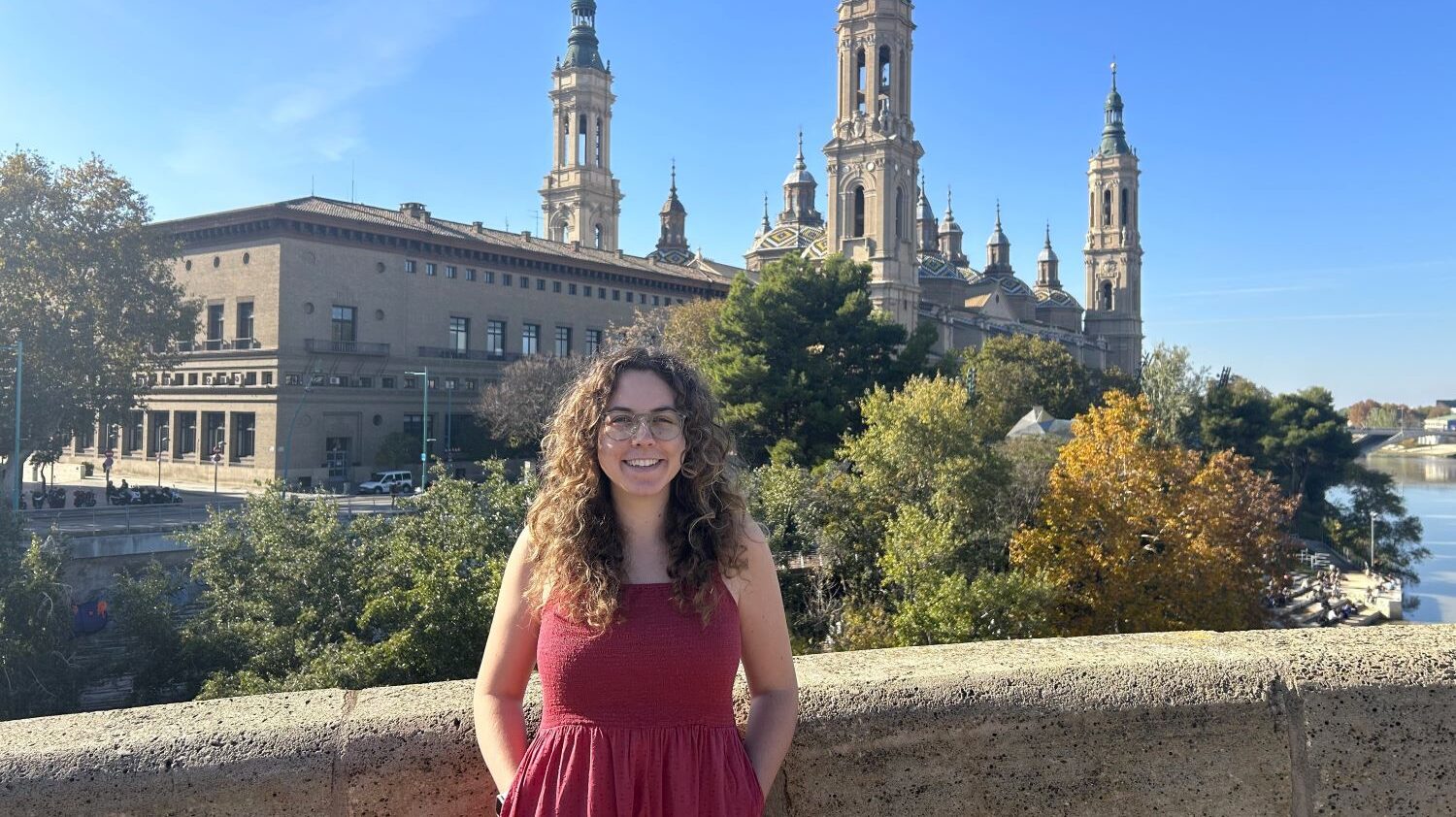Preserving the Spanish of Yucatan

For Foreign Languages and Literatures professor Jim Michnowicz Think and Do means, among other things, preserving linguistic diversity around the world, particularly Latin America.
Michnowicz is one of the few scholars who study the Spanish of Yucatan, Mexico, which is in contact with an indigenous language, Yucatec Maya. Michnowicz recently returned from a research trip to Yucatan, funded by the Dr. Mark Sosower Memorial Faculty Travel Award. His research aims to observe and understand how indigenous languages, such as Yucatec Maya, can impact the Spanish spoken in the region.
As one of the last remaining major language contact zones in Latin America, Yucatan Spanish can serve as a living laboratory for similar processes that may have occurred in other regions in the past.
In a recent interview by La Jornada Maya, a newspaper in Merida, Yucatan, Michnowicz describes how yucatecos are losing many traditional forms, due to a multitude of factors including “the massive migration of people from other states, advances in communication technologies, and greater access to education, among other causes.”
Yucatan Spanish is the result of many years of interaction between the Native Yucatan Maya dialect of this region and Spanish. Since less and less native speakers of Maya as a dominant language exist today, traditional Maya-influenced Yucatan Spanish is also giving way to a more national, standard dialect.
“Linguistic change is unavoidable,” Michnowicz explains. “Languages change. They have always changed, are changing now, and will continue to do so.
“The language we use is one of the strongest connections we have to our identities.” Like typical Southern English in Raleigh, in urban areas, younger speakers don’t sound particularly Yucatecan. The traditional dialect may be in danger of fading away.
As a first step to preserving this unique dialect of Spanish, Michnowicz proposes that the local educational system should make efforts to teach Yucatecos to “value their own language.”
“It is not bad Spanish as many people think,” he said, “it’s just a form of Spanish that has evolved with the particular history of Yucatan. And once the speech is lost, a part of their history will be lost as well.”
To support faculty research like this, please visit our giving site.
Editor’s Note: This story is adapted from “El español que se habla en Yucatán tiende a desaparecer: Michnowicz” by Óscar Rodríguez, La Jornada Maya, June 22, 2016.


